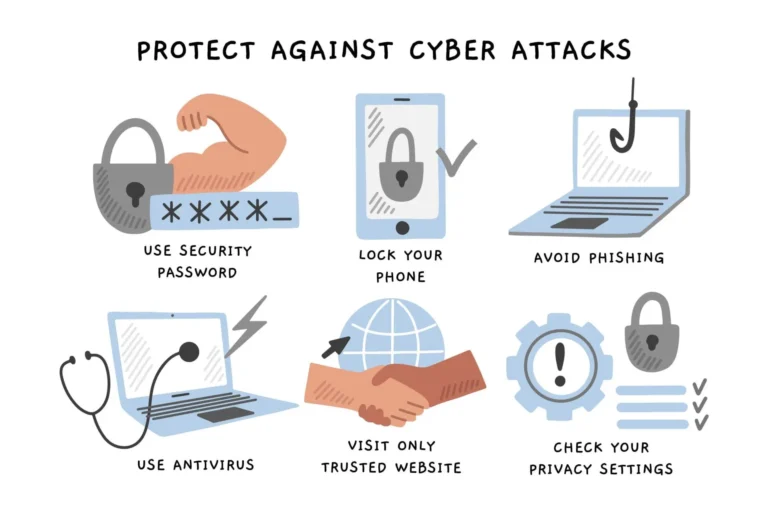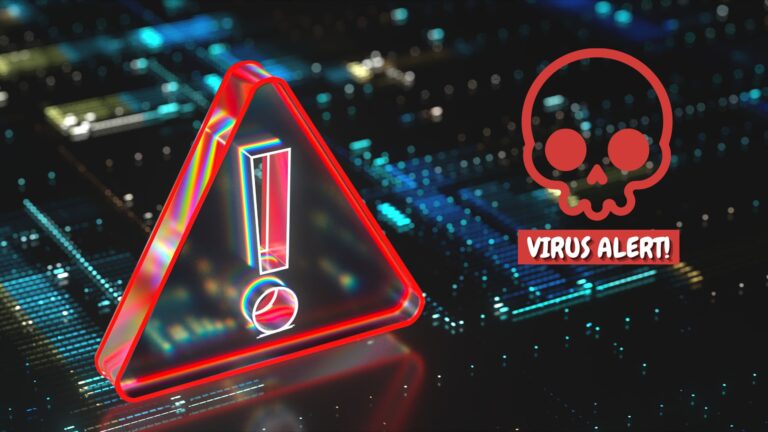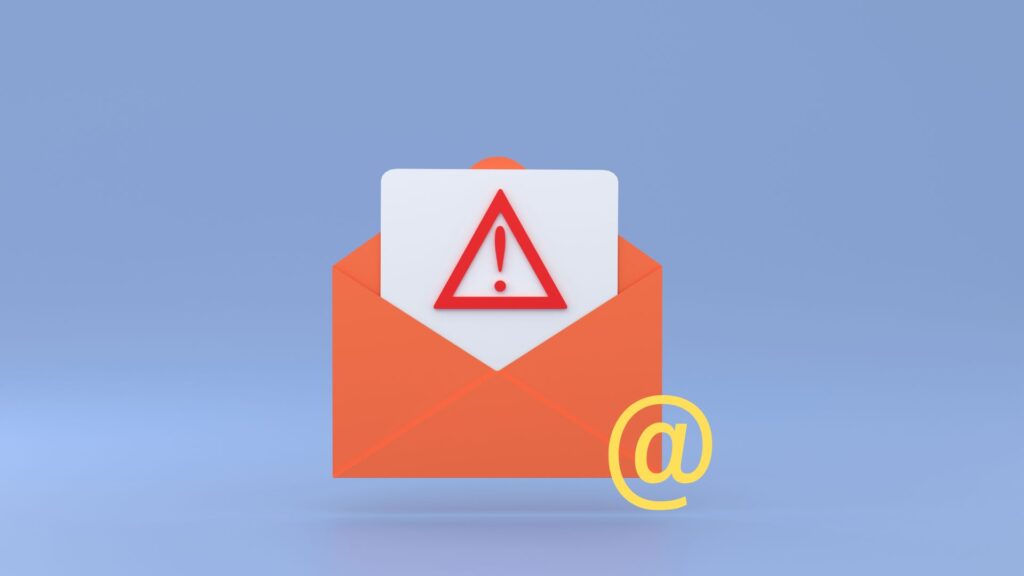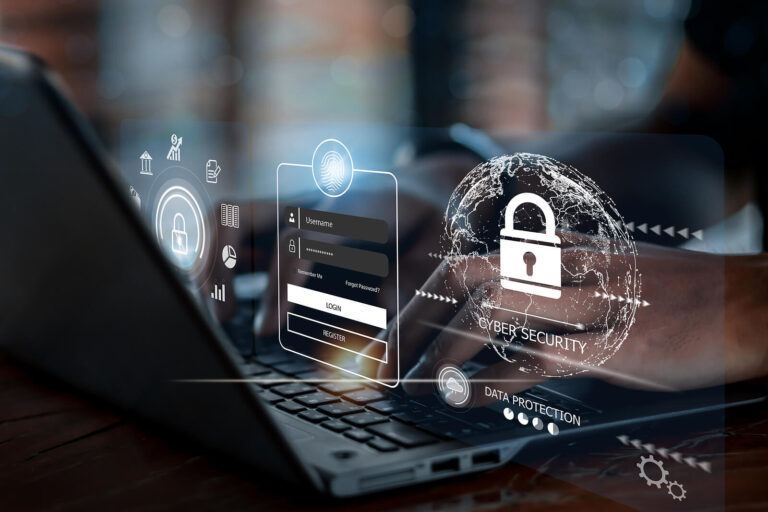Ultimate Guide to Computer Security: Essential Tips for Protecting Your System
Computer security is more crucial than ever. Protecting your computer from potential threats and vulnerabilities ensures that your personal data, financial information, and sensitive documents remain safe. In this comprehensive guide, we will delve into various aspects of computer security and provide actionable tips to enhance your system’s defense against cyber threats, ensuring robust protection and peace of mind.

1. Use Strong Passwords for Enhanced Computer Security
A fundamental and critical aspect of computer security is the use of strong, secure passwords. To safeguard your computer security, it is essential to ensure that your passwords are not only long but also unique, incorporating a complex mix of uppercase and lowercase letters, numbers, and special characters. Passwords should be regularly updated to avoid potential breaches. Weak passwords are one of the most common entry points for cybercriminals, so implementing strong password practices is vital. For further insights and best practices on creating strong passwords that enhance your security, visit Cybersecurity & Infrastructure Security Agency.
2. Enable Firewall Protection
A firewall serves as a crucial line of defense in computer security, acting as a barrier between your computer and potential threats from the internet. By enabling firewall protection, you prevent unauthorized access to your system and effectively block malicious traffic that could compromise your data. Proper firewall configuration and regular monitoring are necessary to maintain optimal security. Firewalls can be hardware-based or software-based, and both are essential for safeguarding your network. For detailed guidance on configuring and maintaining firewalls, check out Norton.
3. Backup Your Data Regularly for Reliable Computer Security
Regular data backups are a fundamental practice. By performing regular backups, you ensure that your data is safeguarded against potential cyberattacks, hardware failures, or accidental deletions. This proactive measure allows you to recover crucial files and restore your system to its previous state in the event of data loss. Reliable backup solutions should be employed, and backups should be stored securely, preferably in multiple locations. For more information on effective backup strategies that can bolster your computer security, explore PCMag’s guide on data backup.
4. Install and Maintain Antivirus Software
Installing and maintaining reliable antivirus software. Antivirus software is designed to detect, quarantine, and remove various forms of malware, including viruses, spyware, and ransomware, which pose significant threats to your system. Keeping your antivirus software up-to-date is crucial, as it helps address new and evolving threats that could compromise your computer security. Regular scans and updates ensure that your protection remains effective against the latest cyber threats. Learn more about the importance of antivirus software and how it contributes to optimal computer security at Kaspersky.

5. Keep Software and Operating Systems Updated to Ensure Computer Security
Keeping your software and operating systems updated is an integral part. Software updates and patches often include critical fixes for vulnerabilities that could be exploited by attackers. Regularly applying these updates helps to fortify your system against potential security breaches. Automated updates are recommended to ensure that your system always has the latest security improvements. For a deeper understanding of why maintaining updated software is essential for computer security, visit Microsoft’s Security Update Guide.
6. Be Cautious with Email Attachments and Links
Phishing attacks and malicious links are significant threats to computer security. It is crucial to exercise caution when handling email attachments and links, especially those received from unknown or suspicious sources. These emails can lead to phishing websites or install harmful software on your computer. Implementing a strategy for identifying and avoiding phishing attempts is vital for maintaining computer security. For expert tips on recognizing and avoiding phishing scams, refer to Federal Trade Commission’s advice on phishing.

7. Secure Your Wi-Fi Network
Securing your Wi-Fi network is a critical element, as it protects your network from unauthorized access and potential attacks. Begin by changing the default settings on your router, including the default passwords and SSID names. Use strong encryption methods like WPA3 and set a complex password for your network to prevent unauthorized users from gaining access. Regularly reviewing and updating your network security settings helps to enhance overall computer security. For additional tips on securing your Wi-Fi network, visit How-To Geek’s Wi-Fi security guide.
8. Educate Yourself and Others for Enhanced Computer Security
Education plays a vital role in computer. Staying informed about the latest threats and best practices helps you protect your system more effectively. Additionally, sharing knowledge with family, friends, and colleagues about safe online practices, recognizing phishing attempts, and avoiding risky websites can contribute to a broader security culture. For ongoing education and resource, checkout StaySafe online.
9. Use Two-Factor Authentication (2FA) to Improve Computer Security
Two-Factor Authentication (2FA) provides an additional layer of security beyond your password. By requiring a second form of verification, such as a code sent to your phone or an authentication app, 2FA significantly enhances your computer security. This extra step makes it much harder for unauthorized individuals to gain access to your accounts, even if they have your password. Enabling 2FA on your critical accounts is a proactive measure to protect your data and personal information. For more information on implementing 2FA, visit Google’s guide on two-factor authentication.
10. Monitor System Activity for Proactive Computer Security
Regularly monitoring your system activity is a proactive approach to computer security. Utilizing monitoring tools and software allows you to detect unusual or unauthorized activities early. Keeping an eye on system logs, network traffic, and application behavior helps identify potential security breaches before they can cause significant damage. Regular monitoring ensures that you can respond swiftly to any anomalies, thereby enhancing your overall computer security. Learn more about effective system monitoring tools at TechRadar’s list of monitoring tools.

Computer Security Checklist
| Security Measure | Action Required | Frequency |
|---|---|---|
| Strong Passwords | Create and update passwords regularly | Every 3-6 months |
| Antivirus Software | Install, update, and run regular scans | Monthly |
| Firewall Protection | Ensure firewall is enabled and configured | Ongoing |
| Software Updates | Apply updates and patches | Automatic/Monthly |
| Email Caution | Avoid suspicious attachments and links | Ongoing |
| Data Backup | Perform backups and verify integrity | Weekly/Monthly |
| Wi-Fi Security | Update router settings and password | Every 6 months |
| Education | Stay informed and educate others | Continuous |
| Two-Factor Authentication (2FA) | Enable 2FA for critical accounts | Ongoing |
| System Monitoring | Use monitoring tools to check for anomalies | Daily/Weekly |
By following these comprehensive computer security tips and maintaining regular checks, you can significantly reduce the risk of security breaches and keep your system secure. Stay vigilant and proactive in your approach to computer security to safeguard your digital life and ensure that your sensitive information remains protected. For more detailed guidance and updates on computer security, explore the resources linked throughout this guide.
Conclusion
In conclusion, maintaining robust computer security is vital to protecting your digital life from a multitude of cyber threats. By implementing strong passwords, enabling firewall protection, regularly updating software, and installing reliable antivirus software, you create a solid defense against potential breaches. Regularly backing up data and securing your Wi-Fi network further strengthens your security posture, while practicing caution with email attachments and links minimizes the risk of phishing attacks. Educating yourself and others, using two-factor authentication, and actively monitoring system activity are proactive steps that contribute to a secure computing environment.
By following these essential tips and staying informed about evolving threats, you ensure that your personal data, financial information, and sensitive documents remain safeguarded. Investing time and effort into these computer security practices not only protects your system but also provides peace of mind in an increasingly connected world. For ongoing updates and resources on computer security, explore the additional guidance linked throughout this guide and remain vigilant in your security practices.

